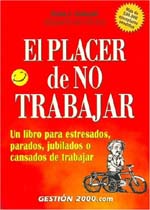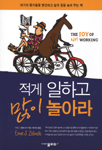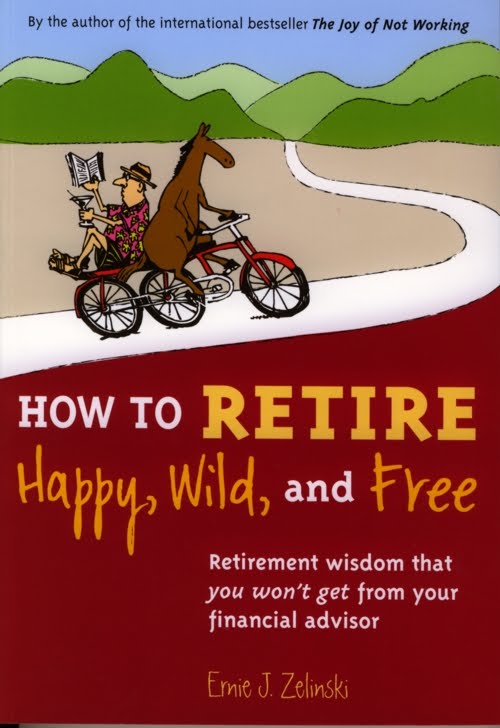
Following is the most recent e-mail that I received about The Joy of Not Working: A Book for the Retired, Unemployed, and Overworked that was sent to me by Eric Clarke of British Columbia.
- ----- Original Message -----
From: Eric Clarke
To: vip-books (at) telus.net
Sent: Thursday, October 23, 2008 3:58 PM
Subject: To ErnieZelinski - Thank you!
Dear Ernie,
I have just finished reading the The Joy of Not Working. What a truly
enjoyable and thought provoking book. As a recent retiree you have
helped me to remember what is most important in life and generously
shared your personal experiences, thoughts and some tools to help
me reconnect with those things.
I am looking forward [to retirement ]with excitement and anticipation as I begin this
journey and hope that at the end I find I have grown into a fully
developed and happy child.
Thank you.
Eric Clarke
Email - chimiera (at) shaw.ca
Tele: 573-5982
Here are the covers of some of the other Foreign Editions of The Joy of Not Working:
- French Edition

- Spanish Edition

- Japanese Edition

- Czech Edition

- Greek Edition

- German Edition

- Turkish Edition

- French Edition - Canada

- Dutch Edition

- Korean Edition

- Italian Edition

- Chinese Edition - Traditional Characters

- Chinese Edition - Simplified Characters

- Portuguese Edition

- Polish Edition

- Indonesian Edition









